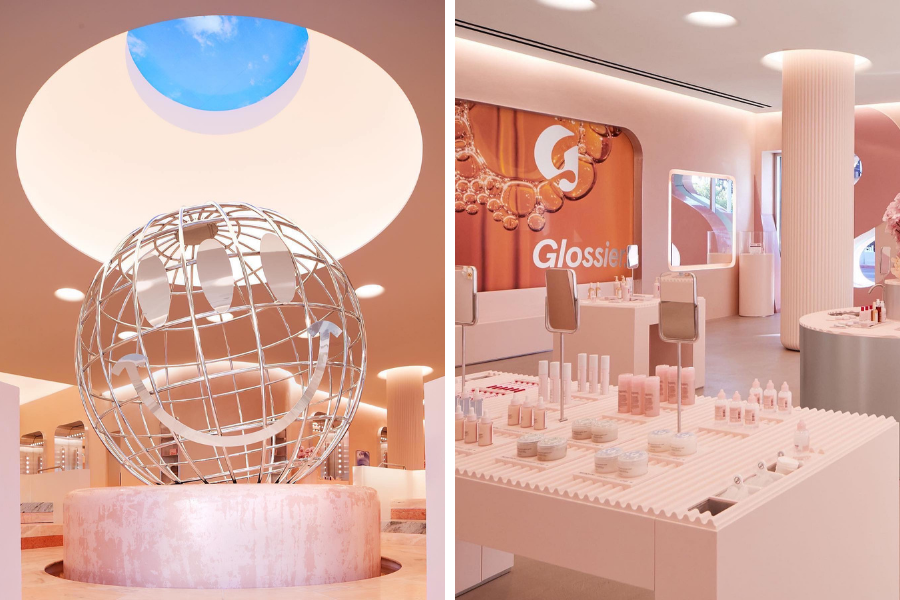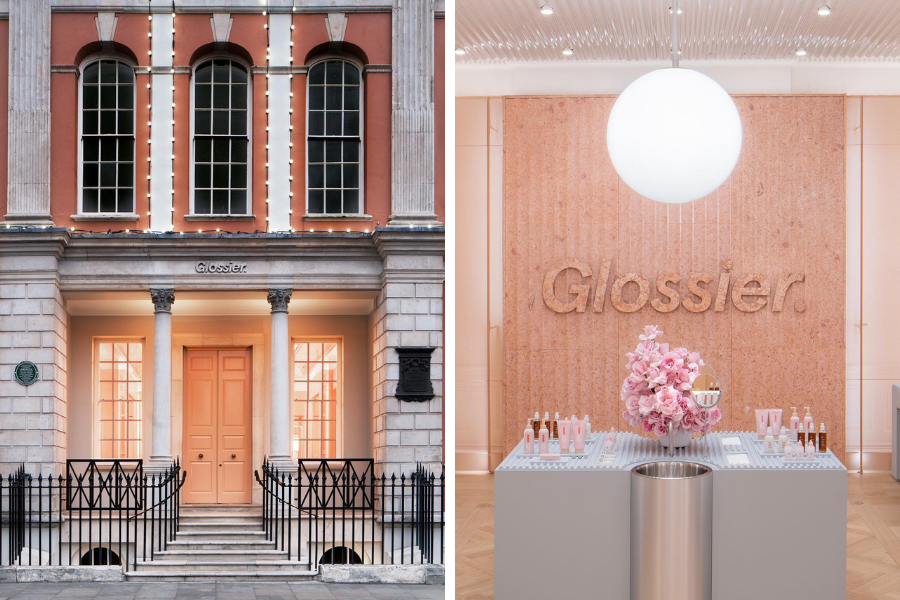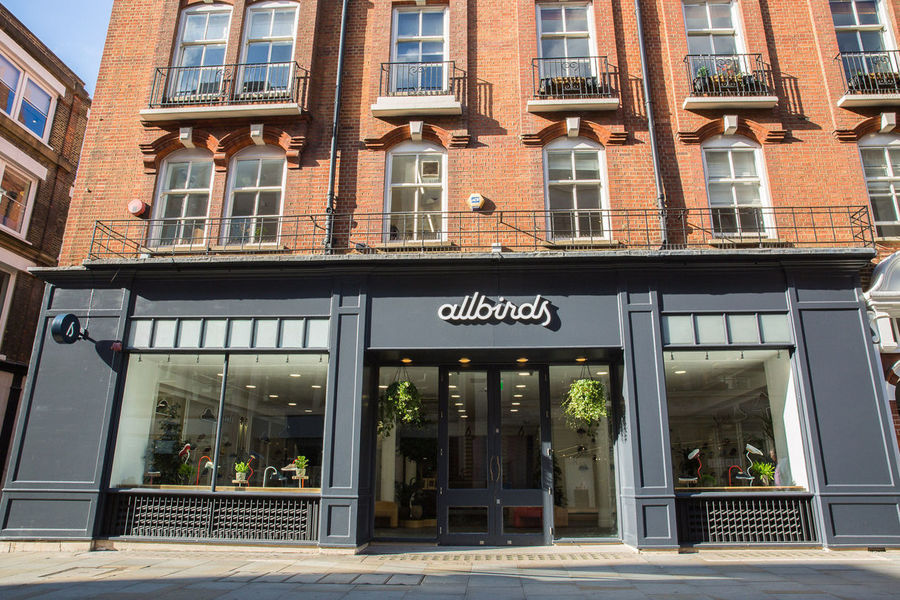Why are Digital Native Vertical Brands Moving Offline?

With many brands now starting their life online, we are beginning to see growth in reverse to the norm. Exclusively online brands are now looking to move into the physical space in contrast to brands with a history in physical sales looking to move into eCommerce.
What are Digital Native Vertical Brands?
When you hear the term ‘Digitial Native Vertical Brands’ (DNVBs) you may be excused for thinking these are businesses that sell online via eCommerce platforms. However, there is more to a DNVB that makes them specialist in nature.
Although DNVBs do sell online, unlike other brands that may have started selling through traditional brick and mortar stores, DNVBs start their lives selling Direct to Consumer (D2C) - this is what makes them “digitally native”.
DNVBs also differ from other eCommerce stores due to the fact that they offer exclusive products, cutting out the middleman. For example, where many online stores may sell products from various brands, DNVBs design their own products, work directly with manufacturers and then sell them direct to consumers - this is what makes them “vertical”.
Why are DNVBs Great?
With products to design, manufacturers to negotiate with, eCommerce sites to manage and marketing strategies to execute, running a DNVB is a lot of hard work. Given the need to grow a brand from scratch, success can also be incredibly slow and hard to achieve - so why does anyone do it?
There are several benefits to running a DNVB, arguably the biggest of which is increased profit. Most eCommerce companies generate tiny profits on each item they sell, often losing profit to markups added by various parts of the supply chain.
By controlling the whole supply chain DNVBs can leverage much higher profits on each unit they sell. DNVB brands profit from 2x higher gross margins and 4x higher contribution margins than traditional brands within e-commerce.
Other benefits include:
- Lower operating costs
- Greater brand value
- Higher customer loyalty
- Increased transparency
- Better control over customer experience
- Easier product development
Why are DNVBs Moving Offline?
Just because DNVBs are born online, doesn’t mean they cannot expand into other forms of marketing and selling.
Marketing and advertising online are growing in popularity and therefore growing in competition and in cost. As the various factors that contribute to Customer Acquisition Costs (CAC) continue to increase, smart DNVBs are seeking out new, lower-cost ways to reach their customers and sell.
Although accessibility plays a major part in most DNVBs decision to launch exclusively online, increased costs are now leading to many of them turning to physical sales and marketing methods such as temporary or permanent brick-and-mortar stores.
Given the innovative nature of DNVBs, many of these physical stores are leveraging technologies to promote omnichannel marketing and purchasing.
Pop-ups or Permanent Stores: Best for DNVBs
There are two options open to DNVBs when they want to open a bricks-and-mortar store: pop-up/temporary stores or permanent stores. Which one is right for each brand depends on several factors.
Benefits of pop-ups for DNVBs:
- Flexibility of location
- Short term cost saving
- Ability to test a concept before committing
- Easier to secure space
- Marketing/sales benefits associated with scarcity
Benefits of permanent stores for DNVBs:
- More established presence
- Potential long term cost saving
Examples of Success
Glossier
Glossier is a leading DTC cosmetics brand that has a history of running successful pop-up and permanent stores. In fact, Glossier reports high conversion rates of 50% at their permanent stores and 60% at their pop-ups.
After running a successful pop-up in Covent Garden, London, Glossier will be opening a permanent flagship store in London this month.
 Glossier's brand new international flagship in London - Image credit: glossier.com/locations
Glossier's brand new international flagship in London - Image credit: glossier.com/locations
Casper
Casper is a DTC brand that has seen massive growth with their sleep-related products - initially selling quality mattresses delivered in a box and since moving into sleep lamps, smart blankets and even bed frames.
In October 2020, Casper hosted a pop-up to sell limited edition sleep-themed goodies ranging from sweatshirts to puzzles and even mugs. This was a powerful marketing strategy for Casper and also allowed them to raise money for a relevant charity with 20% of all sales going to Win.
Harry’s
Harry’s are a razor subscription company that has taken the world by storm. By producing their own razors and going direct to consumers, they have cut the price of quality razors considerably and now have a large market share.
In 2016, Harry’s hosted their ‘Bartershop’ pop-up store in New York where they allowed customers to trade in their big brand razors for Harry’s alternatives.
Allbirds
Allbirds are an eco-focused DTC shoe brand that has experienced massive online growth. Originally selling exclusively online, Allbirds have now hosted several successful pop-ups and have over 30 permanent stores across the globe.
 Allbirds Store in Auckland - Image credit: facebook.com/weareallbirds
Allbirds Store in Auckland - Image credit: facebook.com/weareallbirds
The Honest Company
Jessica Alba started The Honest Company in 2011 which has since seen huge success. In 2015, The Honest Company hosted a largely popular pop-up in The Grove as a brand-building exercise and to test the viability of more permanent stores.
Opportunities for Retailers & The Future of DTC
As the cost of advertising, marketing and selling online increases we are likely to see DNVBs continue to expand into brick-and-mortar presences. However, this isn’t exclusively due to cost-saving, but also due to many of these businesses proving their concepts online before moving into a physical presence on the high street.
Smart retailers will look to build relationships with DNVBs as partnerships will likely be lucrative as these popular brands look to expand and test new methods of selling.